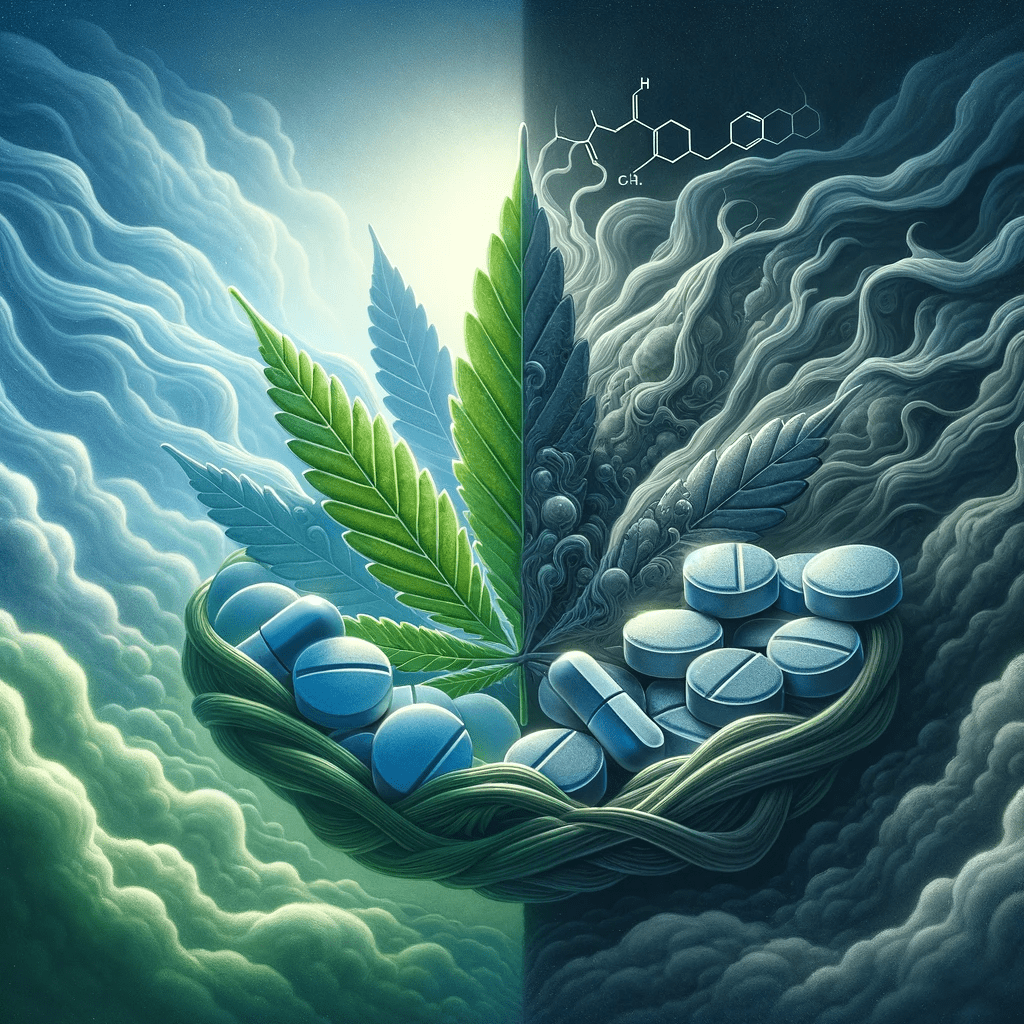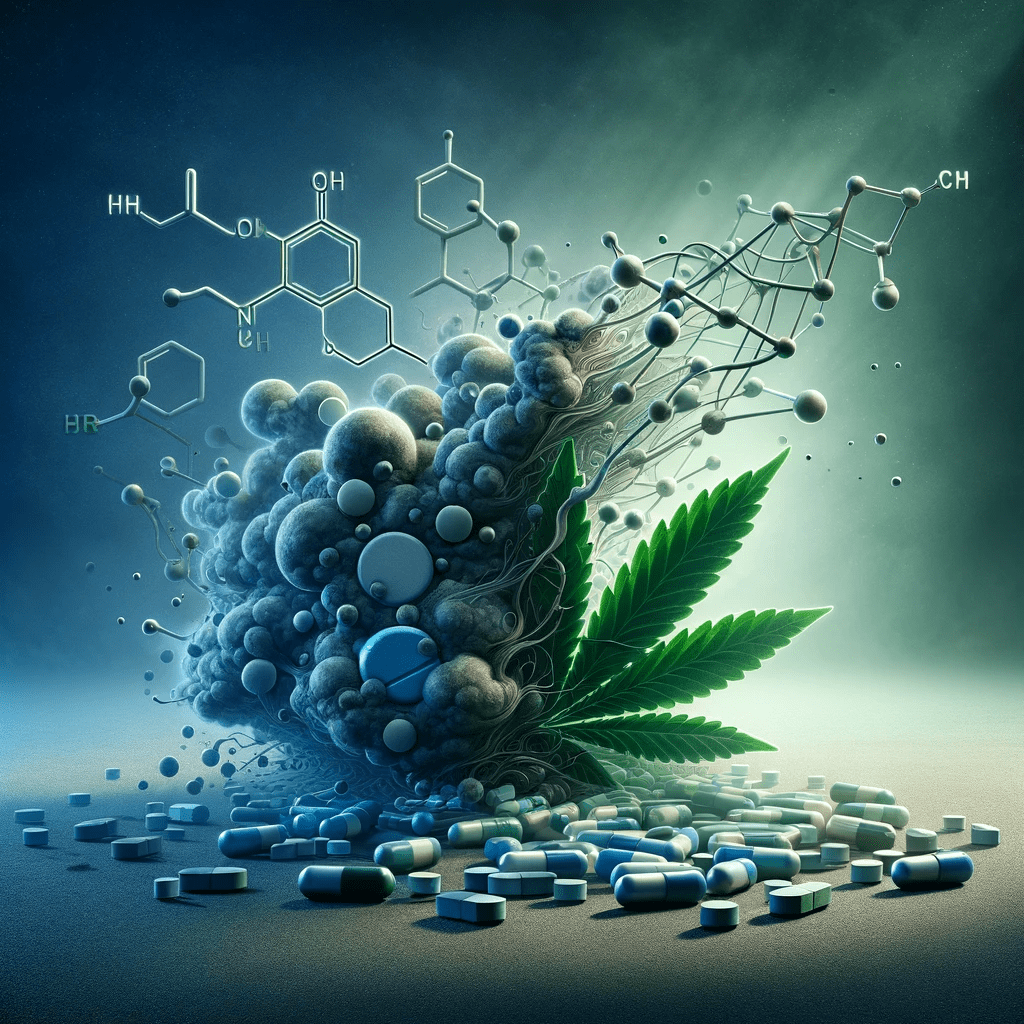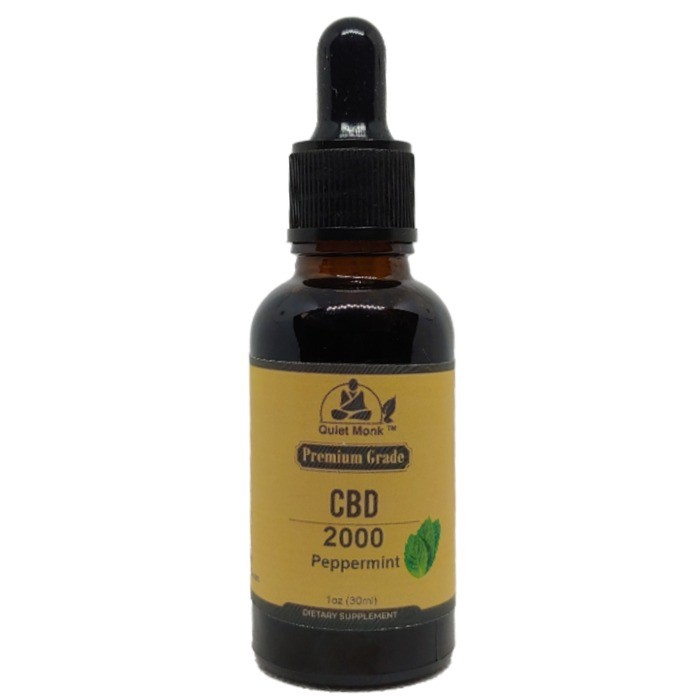
The short answer: Always check with your doctor or healthcare provider first!
What is CBD?
Cannabidiol, known as CBD, is a compound found in cannabis plants. It’s non-psychoactive and has several health benefits. You can take CBD oil orally or apply it to your skin. It interacts with your body’s endocannabinoid system to help with anxiety, pain, inflammation, seizures and other conditions.
CBD products are becoming more popular because of how useful they are. Research shows it’s a good remedy for depression and anxiety, plus it doesn’t have side effects. Furthermore, it has anti-inflammatory properties, so it’s useful for chronic pains like arthritis.
CBD and antidepressants can interfere with each other. They are both metabolized by the same enzymes in the liver. If you take them together, it can increase the amount of drugs in your blood, leading to bad reactions. So, if you take antidepressants and you want to try CBD oil, first talk to your doctor.
To make sure you get the most out of CBD oil and to avoid any problems, get informed about how it interacts with your medicine. It’s best to start small when taking CBD products and increase the dosage slowly while watching for side effects.
What are antidepressants?
Antidepressants are drugs prescribed to treat mood disorders, such as depression, anxiety and obsessive-compulsive disorder. They work by changing the chemical balance in the brain, raising neurotransmitter levels like serotonin, norepinephrine and dopamine. Different types of antidepressants include SSRIs, MAOIs, TCAs and atypical antidepressants. A doctor’s prescription and supervision is needed to avoid adverse reactions.
CBD can interact with antidepressants due to their effect on the same enzyme system. This could lead to either increased or decreased blood concentrations of antidepressant medication, so close monitoring is necessary. CBD can also cause side effects like dizziness, dry mouth or fatigue, which can overlap with depression or anxiety symptoms.
Studies suggest taking CBD with some antidepressant medications can lead to a drug-drug interaction, resulting in toxicity or ineffective treatment. Patients should consult their physician before combining CBD and antidepressants for their safety profile.
Harvard Health publishing(1) states that CBD can increase serum concentrations of certain drugs, such as macrolide antibiotics, calcium channel blockers, benzodiazepines, cyclosporine and antihistamines.
Looks like CBD and antidepressants are about to have a conversation more awkward than your ex running into your current partner!
Can CBD interact with antidepressants?
To understand whether CBD can interact with antidepressants, you need to know about the two sub-sections: how CBD affects the cytochrome P450 system, and how CBD interacts with specific antidepressants. These sub-sections will provide you the detailed solutions to understand the interaction of CBD with antidepressants in a distinct manner.
How CBD affects the cytochrome P450 system
CBD can meddle with the action of catalysts in the cytochrome P450 framework. This influences the digestion of certain drugs. CBD can stop these catalysts, keeping them from separating down medications as they ought to. This implies taking CBD with certain antidepressants may affect their viability and cause potential reactions.
Not all antidepressants are processed through this framework. Nor do all people experience negative collaboration. In any case, it’s still basic to counsel a healthcare supplier before joining CBD into an antidepressant system to avoid potential issues.
An interesting detail is that CBD can be utilized to soothe side effects of melancholy and tension alone. Studies have demonstrated encouraging outcomes in utilizing CBD as a treatment for various psychological well-being disorders. But more research is needed to completely comprehend its impacts on each individual and how it cooperates with different medications.
Pro Tip: Consulting with a healthcare supplier and examining any potential medication collaborations is pivotal before adding CBD or any new supplement to your wellbeing schedule.

How CBD interacts with specific antidepressants
CBD might interact with certain antidepressants. This could result in higher levels of meds in the body, causing drowsiness and unsteady movements. But, some research has suggested that CBD and antidepressants can work together to increase their effects.
SSRIs like Prozac and Zoloft may increase the amount of CBD in the blood, leading to more side effects. But tricyclic antidepressants, like amitriptyline, may reduce the power of CBD.
It is wise to talk to a doctor before taking CBD with antidepressants. They can monitor medication levels and adjust doses if needed.
Remember: Always check drug interactions and seek the advice of a healthcare provider to know which products are okay for you. For sure, mixing CBD and antidepressants can guarantee one thing – a super-exciting day!
Risks and potential side effects of mixing CBD and antidepressants
To minimize the adverse effects of mixing CBD and antidepressants, this section will discuss the risks associated with the combination. The sub-sections- Risk of serotonin syndrome, Potential for increased side effects, and Risk of decreased effectiveness of antidepressants – will be briefly introduced as solutions.
Risk of serotonin syndrome
Mixing CBD oil and antidepressants could be life-threatening. It can lead to serotonin syndrome, with symptoms from mild – like shivering, agitation, and diarrhea – to severe – seizures, high fever, and even death.
Serotonin is a neurotransmitter that affects mood, appetite, and sleep. Antidepressants increase serotonin in the brain. CBD interacts with these antidepressants and can cause an excess of serotonin.
There’s also the risk of medication interactions. To avoid issues, talk to a healthcare professional before adding CBD to your routine.
Cases of serious side effects have been reported when combining CBD and antidepressants. For example, one woman on sertraline (an SSRI) for depression had worsening symptoms after she started taking CBD oil. Her symptoms only improved when she stopped both the sertraline and the CBD oil.
More research is needed to understand how CBD interacts with different antidepressants. It’s vital to speak to a doctor before adding any new supplements or medication to your routine. Bottom line – don’t risk it!
Potential for increased side effects of antidepressants
Combining CBD and antidepressants can bring with it an increase in potential negative side effects. These can range from mild to severe, depending on the specific antidepressant you are taking. Although CBD may increase the positives of antidepressants, it is crucial to consider the associated risks beforehand.
Prior to adding CBD to your antidepressant routine, consulting a healthcare professional is key. They will consider factors such as age, weight, dosage and underlying medical conditions, and suggest appropriate dosages to reduce any unwanted effects.
Research suggests that those taking both CBD and antidepressants may experience more extreme side effects than those taking prescription medication on its own. These can include dizziness, nausea, dry mouth, headaches, sedation or even a change in blood pressure. Thus, it is important to be aware of this association.
The evidence of interaction between CBD and certain types of antidepressant medications cannot be overlooked. This could lead to further research and better treatment options in the future. Adding CBD to your antidepressant regimen might make you feel better about taking them – but it won’t necessarily improve your mental health.

Risk of decreased effectiveness of antidepressants
Mixing CBD and antidepressants can be risky. Interactions between these substances can change how the body absorbs the drug, causing dizziness, confusion and impaired motor coordination.
So, chat with a healthcare provider before adding CBD to your antidepressant regimen. Pay attention to changes when starting or stopping either substance. Adjusting dosages gradually will also help reduce any adverse effects.
Bottom line – be informed and be careful when using CBD with antidepressants.
How to safely use CBD with antidepressants
To safely use CBD with antidepressants in the best way possible, you need to take certain precautions. Consult with a healthcare provider before use, start with low doses of CBD, and monitor for any adverse effects. These three sub-sections will help you better understand how to use CBD with antidepressants without risking your health.

Consult with a healthcare provider before use
Before taking CBD with antidepressants, it’s important to get professional advice from a healthcare provider. They can give you helpful information and help you stay safe. When you talk to them, be honest about your medical history, medications, and any symptoms. That way, your healthcare provider can give you personalized advice.
The dosage, how you take it, and how often you use it can all affect the way CBD and antidepressants interact. Depending on the medication, the dose may need to be changed or monitored. Don’t self-medicate or ignore medical advice!
If you have any side effects while using CBD with antidepressants, tell your healthcare provider right away – don’t try to treat it yourself. Dizziness, nausea, fatigue, changes in appetite or mood can mean the substances are not mixing well.
Research from places like PubMed.gov shows that combining CBD with SSRI antidepressants might cause serotonin syndrome – a serious condition seen in emergency departments. So, it’s important to understand the risks before taking CBD with other medicines. Start slow and your antidepressants will be in harmony!
Start with low doses of CBD
To reduce potential interactions with CBD and antidepressants, it’s wise to begin with a tiny amount. Start small, like 2.5mg or 5mg, and increase if needed. Don’t take any other meds or supplements while finding the best dosage. Also, maintain space between doses and stay consistent. Talk to your doc about your progress.
Everybody reacts differently to CBD, so you may need different doses. Track how you feel after taking various forms of CBD to monitor its impact. Share these findings with your doctor.
Adding vitamin D supplements with your antidepressant meds may have a positive effect on depression. Ask your healthcare provider if it’s a good idea.
Be aware of any unexpected reactions; otherwise, antidepressants and CBD could throw a party in your body!
Monitor for any adverse effects
When combining CBD and antidepressants, it is essential to watch for any negative outcomes. Keep an eye on the patient’s mood and behaviour. Look out for side effects such as dizziness, drowsiness, confusion, and low blood pressure. Combining medications can be effective, but there is also a risk of harmful effects if not done carefully.
Prior to using CBD, it is important to observe how it interacts with other meds taken by the patient. Those with a history of substance abuse or addictive behaviour should be considered. If adverse tendencies occur after using CBD, its use should be stopped. Consulting a doctor is always recommended.
Additionally, alternative formulations or dosages that may be better suited for the patient’s condition should be explored. Always follow the doctor’s instructions for dosage or medication changes.
Research reveals that combining multiple medications can dramatically raise the chance of side effects. One study found that CBD could lead to liver abnormalities in certain patients when taken with drugs such as valproic acid. Thus, carefully following doctor’s advice should always be our priority when dealing with these powerful compounds.
In conclusion, combining CBD with antidepressants can be beneficial, but you need to be cautious.
Conclusion
CBD and antidepressants may interact. CBD can affect enzymes that break down drugs, potentially altering their effects. This could create too much or too little of the medication in the body, leading to side effects.
Patients taking antidepressants should start with a low dose of CBD and watch for changes. Consulting a healthcare provider before using them together is important.
Studies show promise for CBD being used to help depression, but more research is needed.
A real-life example: a patient was using both an SSRI antidepressant and CBD oil and had bad reactions like dizziness, confusion, vomiting, and anxiety. A healthcare provider diagnosed them with serotonin syndrome. The patient stopped taking CBD under medical supervision and got better quickly.
Frequently Asked Questions
1. Can CBD interact with antidepressants?
Yes, it is possible that CBD can interact with certain antidepressants. CBD can affect the way that the body processes certain medications, including antidepressants, which can lead to potential interactions.
2. What antidepressants can CBD interact with?
CBD can interact with selective serotonin reuptake inhibitors (SSRIs) like Prozac, Zoloft, and Lexapro as well as tricyclic antidepressants like amitriptyline.
3. What are the potential risks of mixing CBD with antidepressants?
Mixing CBD with antidepressants can increase the risk of side effects such as dizziness, fatigue, and nausea. It can also lead to serotonin syndrome, a potentially life-threatening condition that occurs when there is too much serotonin in the body.
4. Should I stop taking my antidepressants if I want to take CBD?
No, you should never stop taking your antidepressants without first consulting with your healthcare provider. They will be able to advise you on the potential risks and whether or not it is safe for you to use CBD while taking antidepressants.
5. Can CBD be used to treat depression?
While some studies have suggested that CBD may have antidepressant-like effects, it is not currently approved as a treatment for depression. It is important to speak with your healthcare provider before using any alternative treatments for depression.
6. Is it safe to use CBD and antidepressants together?
It is possible to use CBD and antidepressants together, but it is important to do so under the guidance of a healthcare professional. They will be able to monitor you for any potential interactions or side effects and adjust your medication regimen accordingly.
